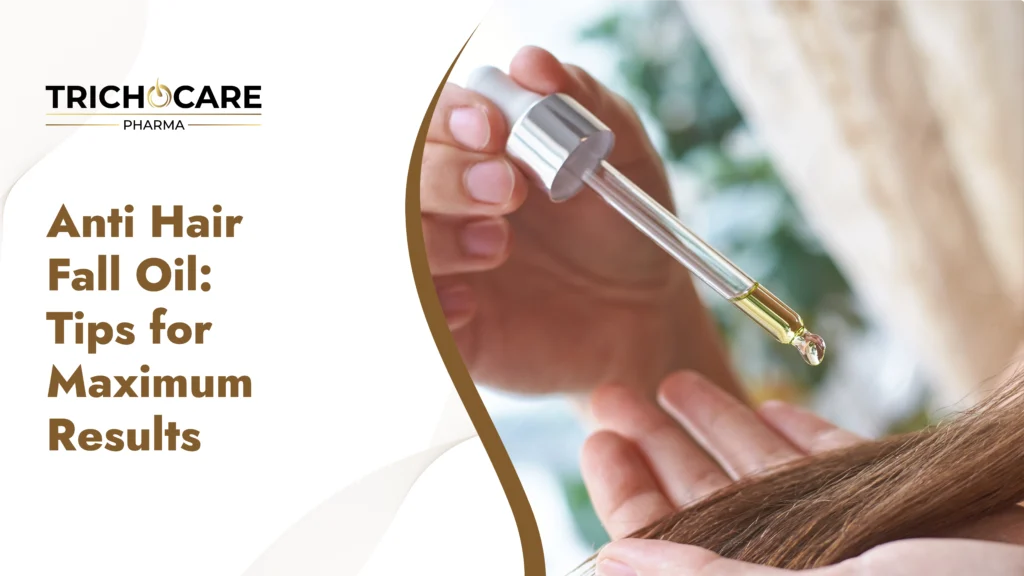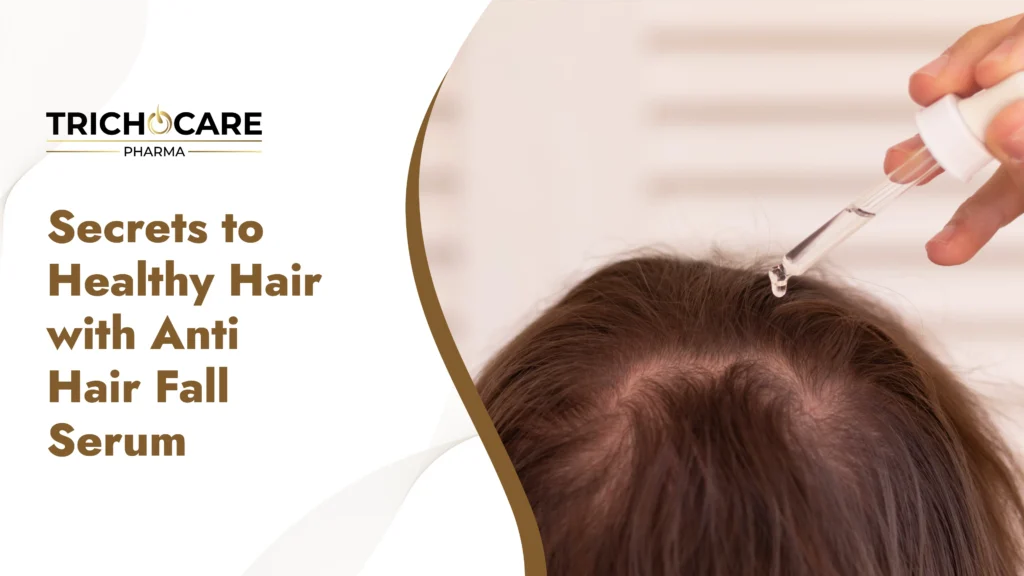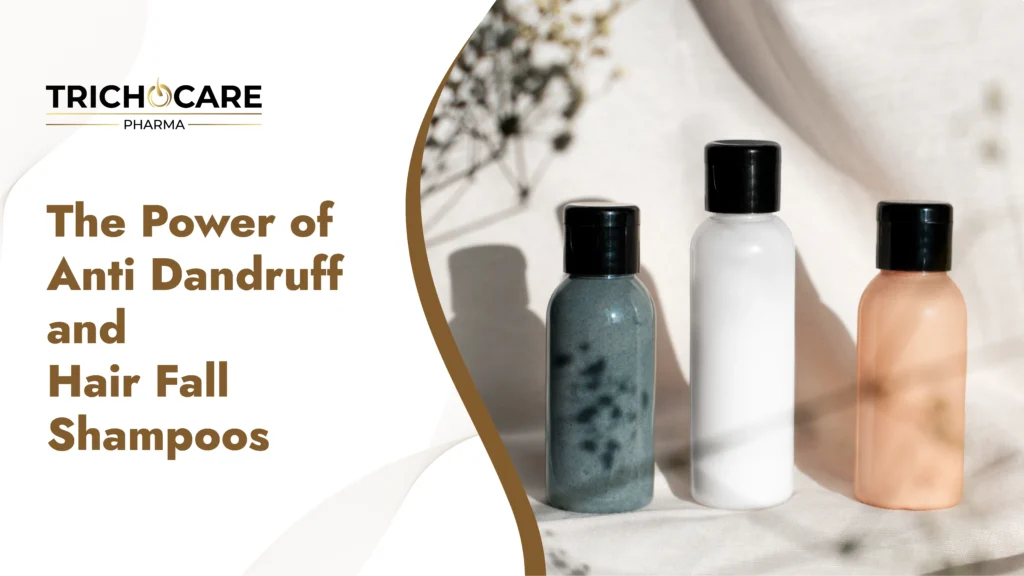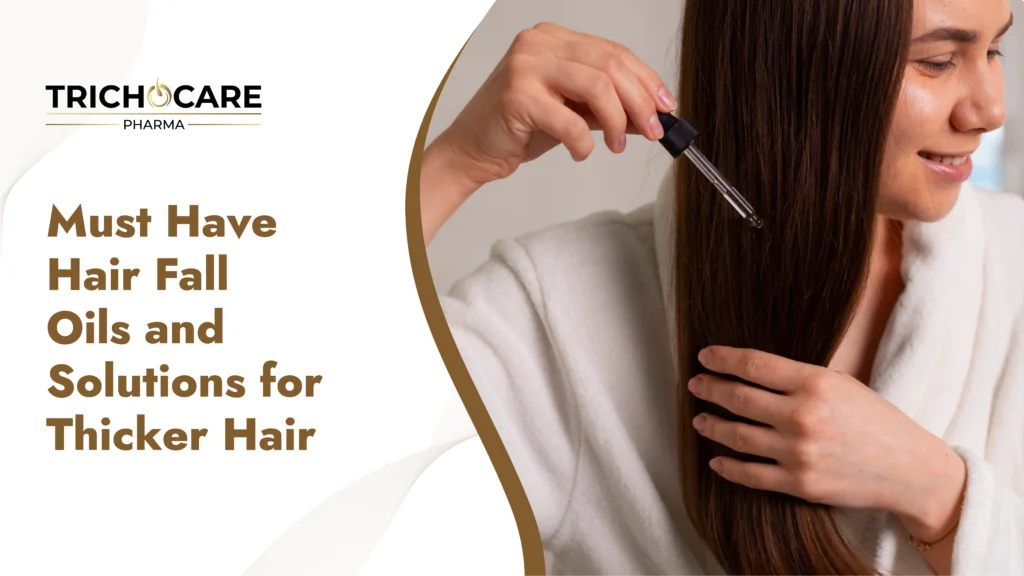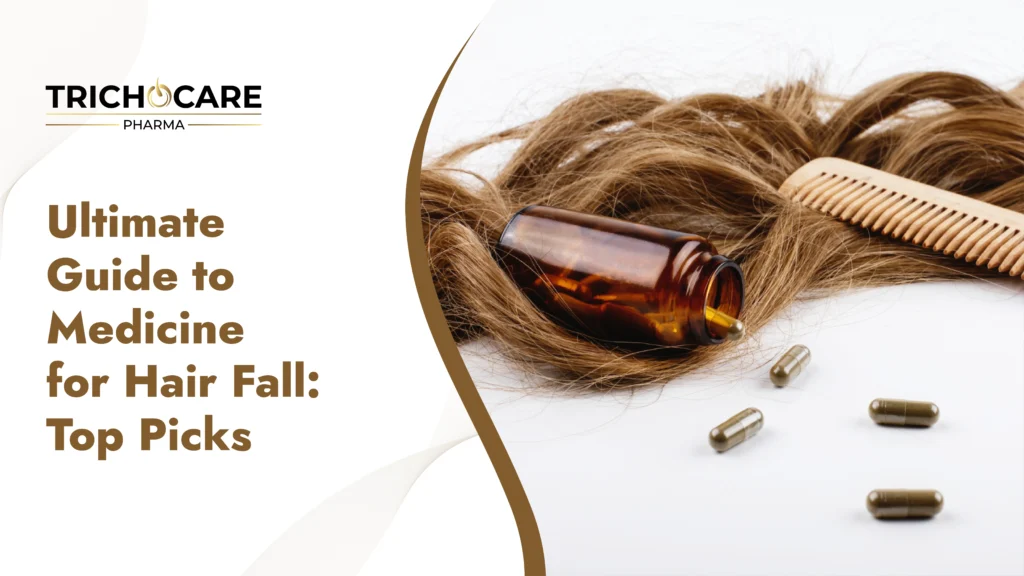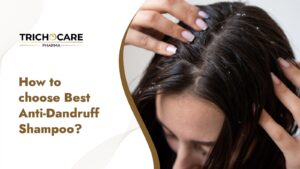What Causes Dandruff
Best anti-dandruff shampoo: Dandruff is a common scalp condition where flakes of white or yellowish skin appear on the scalp. Often perceived as a minor inconvenience, what causes dandruff is important if proper management and prevention are to be achieved.
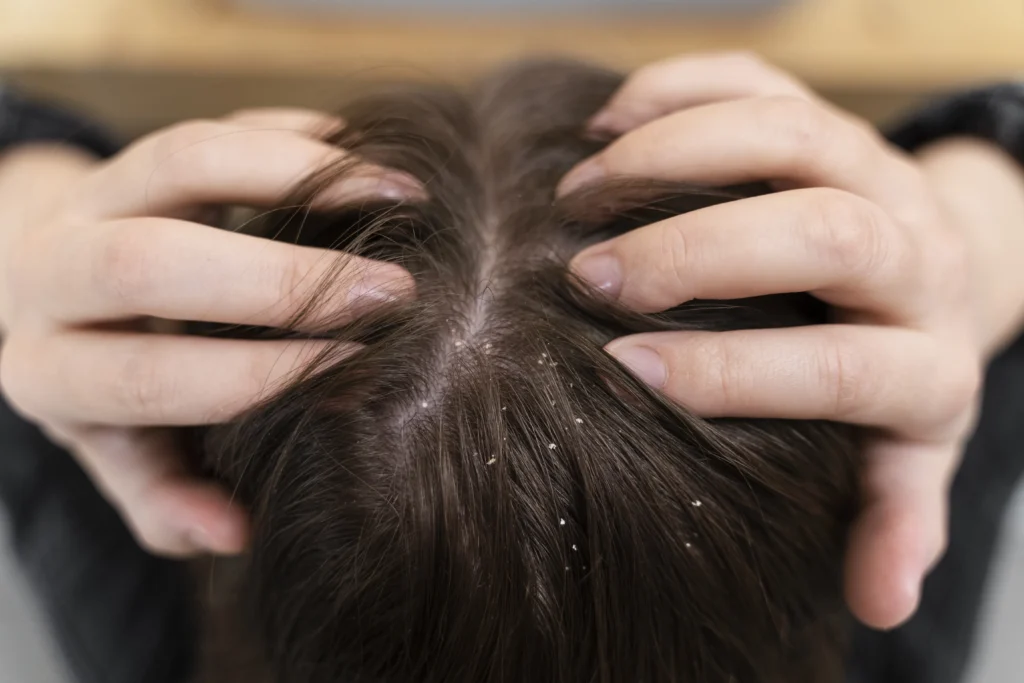
Dry Skin and Scalp Issues
Dry skin, perhaps one of the most common causes of dandruff, dries up and becomes flaky and irritated, and to add insult to injury, is almost prominently visible as dandruff. Cold winds and using stringent shampoos would only make things worse.
Fungal Infections and Yeast
Malassezia is a naturally occurring fungus on the scalp, and overgrowth of this yeast may cause dandruff. This makes the scalp irritated, hence accelerating the shedding of dead skin cells.
Sensitivity to Hair Products
Some people are allergic or sensitive to hair products. This develops contact dermatitis when exposed to a particular hair product. It can cause itchiness and redness accompanied by flaking skin that looks almost identical to dandruff.
Recognizing Dandruff Symptoms
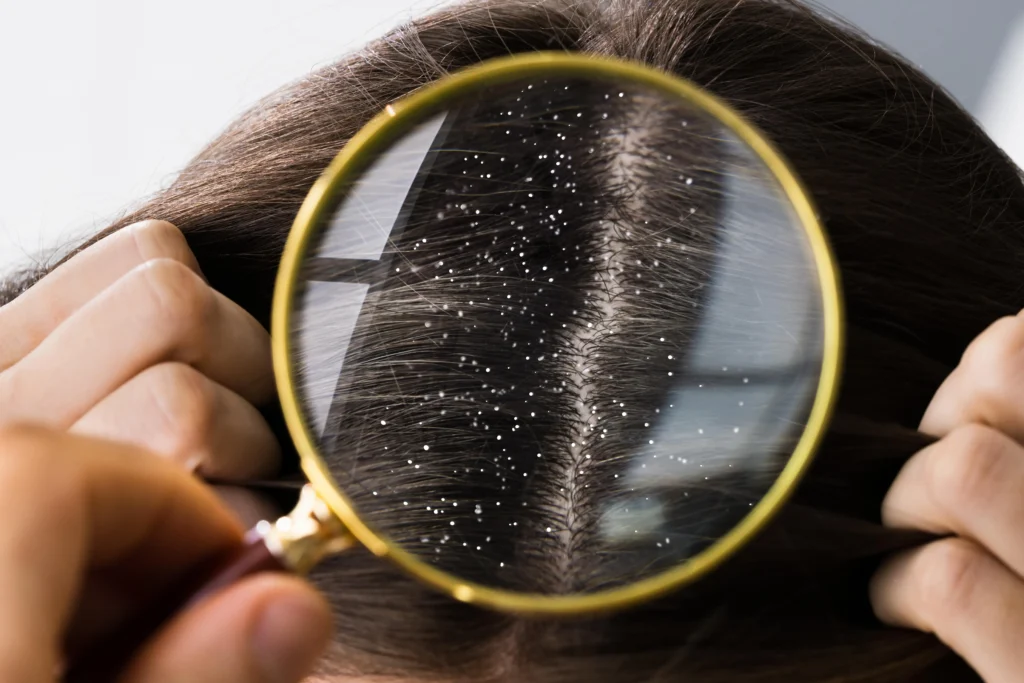
Identifying the symptoms early is an important part of managing it better. Here are the most common signs:
Flaky White or Yellowish Scales
Flaky, white or yellowish scales on the scalp are characteristic symptoms of dandruff. This is normally about dead skin scales that shed excessively as a result of the scalps abnormal condition. Dandruff interferes with the normal skin cell renewal process in such a way that cells begin to pile up and fall off much faster than they normally should.
Itchy Scalp and Irritation
Itching of the scalp is another well-known and irritating dandruff symptom. Caused by irritation and inflammation in the skin on the scalp due to the general causes of dandruff, itching is persistent.
What Triggers an Itchy Scalp of Dandruff?
- Overgrowth of Fungus: The fungus-like yeast Malassezia, which lives on the scalp, grows abnormally in dandruff-prone individuals. Overgrowth causes irritation of the scalp and results in chronic itching.
- Dryness: Dry dandruff might be caused by a very dry scalp, as its skin tightens and becomes itchy.
- Sebum Build-Up: In oily dandruff, which is often linked to seborrheic dermatitis, excess sebum can trap dead skin cells and fungal growth, leading to irritation and itchiness.
Redness and Scalp Inflammation
Dandruff may be accompanied by inflamed, red patches on the scalp, especially in more severe cases.
Hair Loss Caused by Scratching
Excessive scratching can damage hair follicles and also lead to a temporary loss of hair, complicating the disorder.
Types of Anti-Dandruff Shampoo
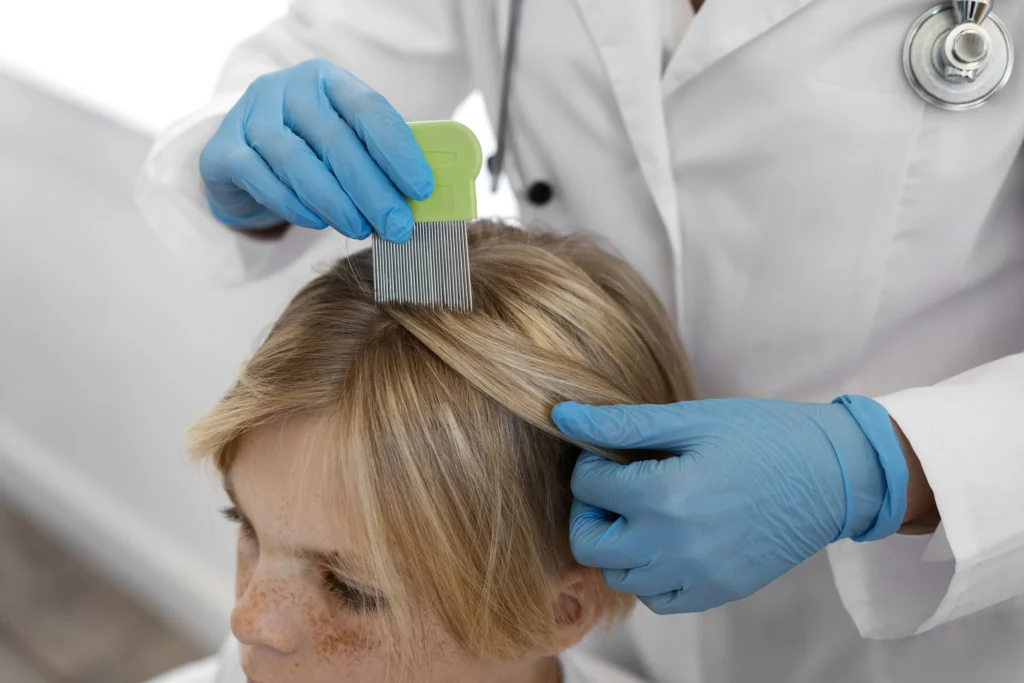
While, undoubtedly, controlling dandruff will involve choosing the right shampoo, here are the main types of shampoos when choosing the best anti-dandruff product:
Medicated Shampoos with Active Ingredients
These anti-dandruff shampoo are mostly manufactured to contain zinc pyrithione, ketoconazole, or selenium sulfide, which are proven to eliminate fungi and effectively remove flakes.
Natural and Organic Shampoo Options
For sensitive scalp and natural remedy lovers, shampoos containing tea tree oil, aloe vera, and other herbal ingredients often prove very effective.
Specific Shampoos for Specific Scalp Types
Other shampoos are specifically designed to address issues about the kind of scalp one possesses: dry scalps, oily scalps, and more, to target therapy and make better solutions possible.
Key Ingredients in Anti-Dandruff Shampoo
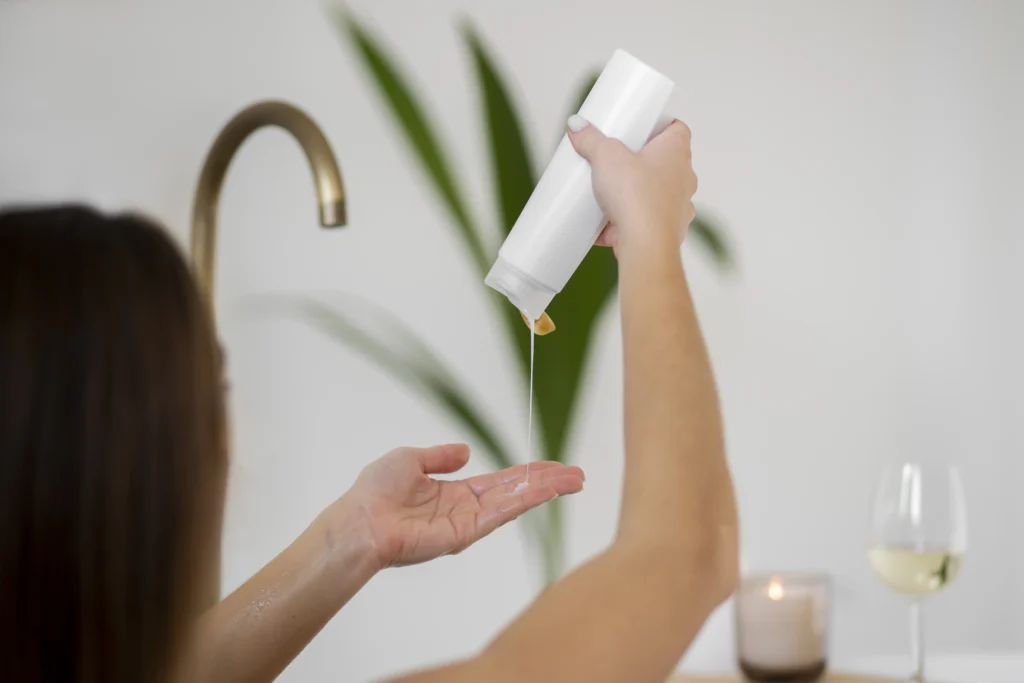
Understanding what is in your shampoo can be one way to make an informed decision:
Zinc Pyrithione, an Antifungal Agent
Zinc pyrithione is one of the most effective and widely used active ingredients in anti-dandruff shampoo. It works by targeting the yeast-like fungus, Malassezia, which is often associated with causing dandruff. The technology of zinc pyrithione reduces the fungal growth that, in turn, dampens the symptoms related to flaking, itching, and redness. It disrupts the fungal cell membranes, thereby killing or slowing the growth of Malassezia. Zinc pyrithione also possesses antiseptic effects that help keep the scalp environment healthy and prevent infection resulting from over-scratching.
Salicylic Acid, the Exfoliating Agent
Salicylic acid is a potent keratolytic agent, meaning it breaks up and removes excess dead skin cells. It is particularly useful for treating dandruff from excessive flaking or scalps with buildup.
How it works:
- Salicylic acid softens and loosens the bonds between dead skin cells, allowing easy washing.
- Salicylic acid opens up pores and keeps them that way by removing oil buildup and debris in the hair follicle that would otherwise cause irritation.
Coal Tar, Anti-Flyaway Agent
Coal tar is a classic ingredient found in dandruff shampoos as it can retard the excessive proliferation of skin cells, a major action mechanism of dandruff. By reducing rapid cell turnover in the scalp, it prevents the deposit of scales and flakes. Coal tar reduces keratinocyte overproduction, which, in turn, impairs the development of dandruff, and it has anti-inflammatory properties that reduce redness and inflammation on the scalp.
Tea Tree Oil for Naturals Treatment
Tea tree oil is an antifungal and antibacterial ingredient in natural form and often used in anti-dandruff shampoos since it’s gentler compared to synthetic chemicals. Tea tree oil has soothing and healing properties that make it perfect for sensitive scalps. It directly kills the fungal overgrowth and prevents further infection or irritation. At the same time, it has soothing properties, thereby reducing redness and itchiness and holding moisture to the scalp.
How to Choose the Right Shampoo
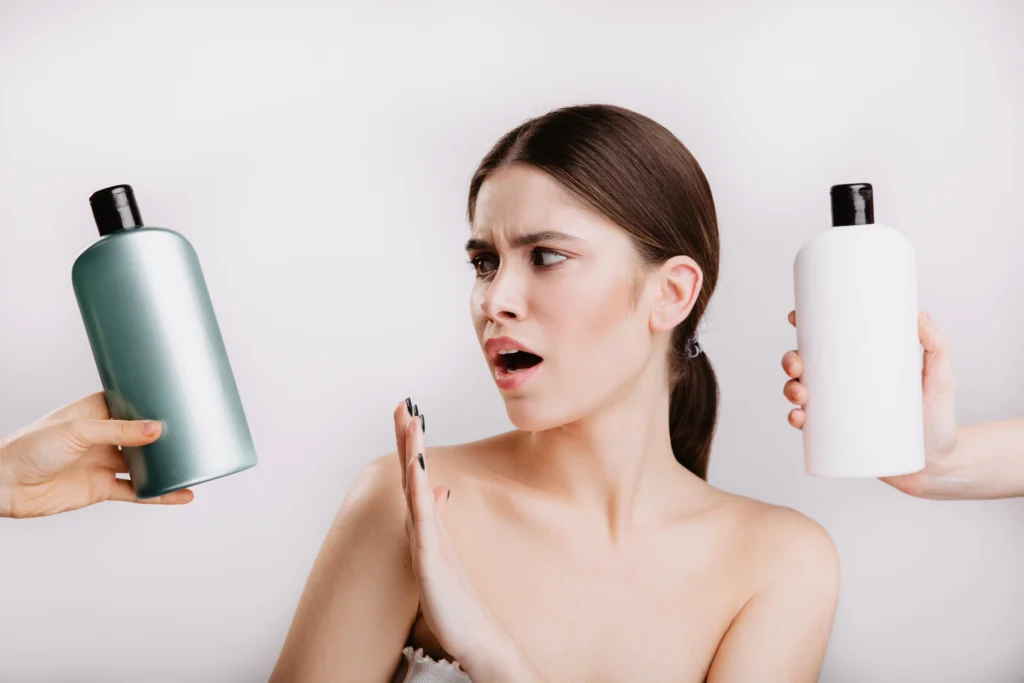
Selecting the right shampoo involves considering several factors:
Consider Hair and Scalp Type
Different hair and scalp types require tailored solutions. For instance, oily scalps may benefit from shampoos with oil-control properties, while dry scalps need moisturizing formulas.
Evaluate Ingredient Effectiveness
Look for active ingredients that address the specific causes of your dandruff, such as antifungal agents for yeast-related issues.
Look for Dermatologist Recommendations
If over-the-counter options fail to work, consult a dermatologist for expert advice on medicated shampoos or treatments.
Benefits of Using Best Anti-Dandruff Shampoo
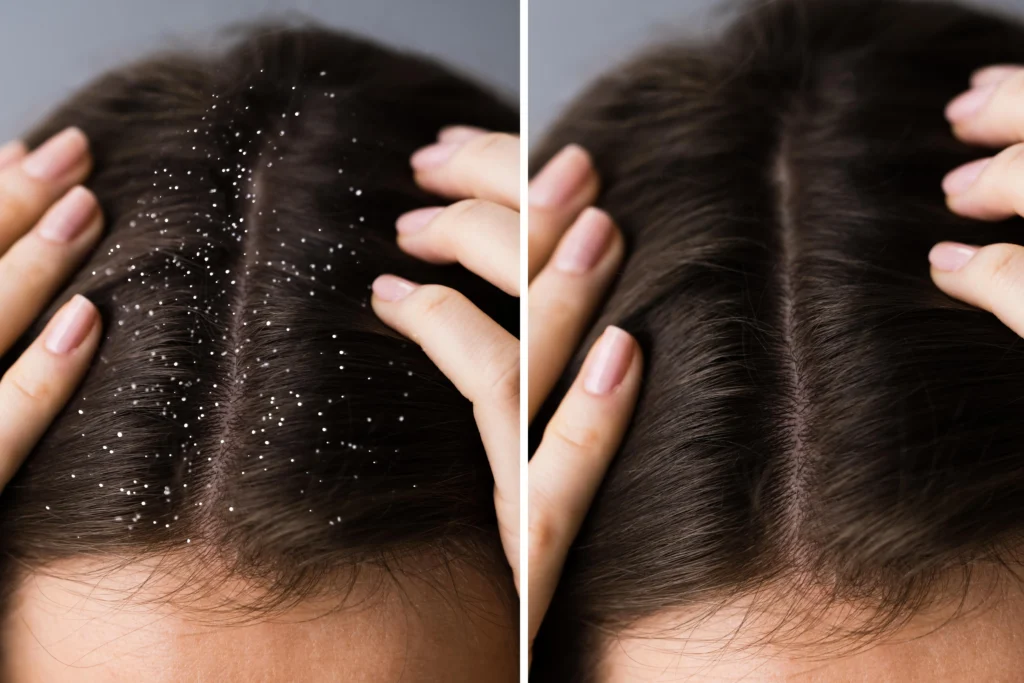
Best anti-dandruff shampoo like BMJ Aloket anti-dandruff shampoo helps in treating dandruff issues. This anti-dandruff shampoo provides a clean and healthy scalp.
Reduces Flaking and Itchiness
The best anti-dandruff shampoo targets two most visible and uncomfortable symptoms of dandruff: flaking and itchiness. These shampoos contain active ingredients that target the root causes and provide effective, long-lasting relief. Ingredients such as zinc pyrithione, coal tar, and salicylic acid work by either slowing the rate at which skin cells multiply or simply removing existing dead skin cells, thereby reducing the potential flakes.
Promotes Scalp Health and Hygiene
Healthy scalp is the foundation for strong, beautiful hair. The best anti-dandruff shampoo ensures your scalp remains clean, balanced, and irritation-free. Selenium sulfide and zinc pyrithione are ingredients used in anti-dandruff shampoo, removing excess oil, dirt, and buildup that lead to clogged pores, thus helping to get rid of dandruff. Antifungal and antibacterial ingredients will keep the scalp environment balanced to prevent infections and outgrowth of fungus.
Improves Hair Appearance and Feel
Dandruff is not only a scalp problem but also affects the look and feel of your hair as a whole. The best anti-dandruff shampoo not just addresses dandruff but also helps improve hair’s texture, shine, and manageability. They prevent flakes from accumulating on the scalp to make hair appear dull and lifeless. Among other ingredients, keratin, panthenol, and natural oils will restore hair damage to make it smoother and totally manageable.
Tips for Managing Dry Scalp
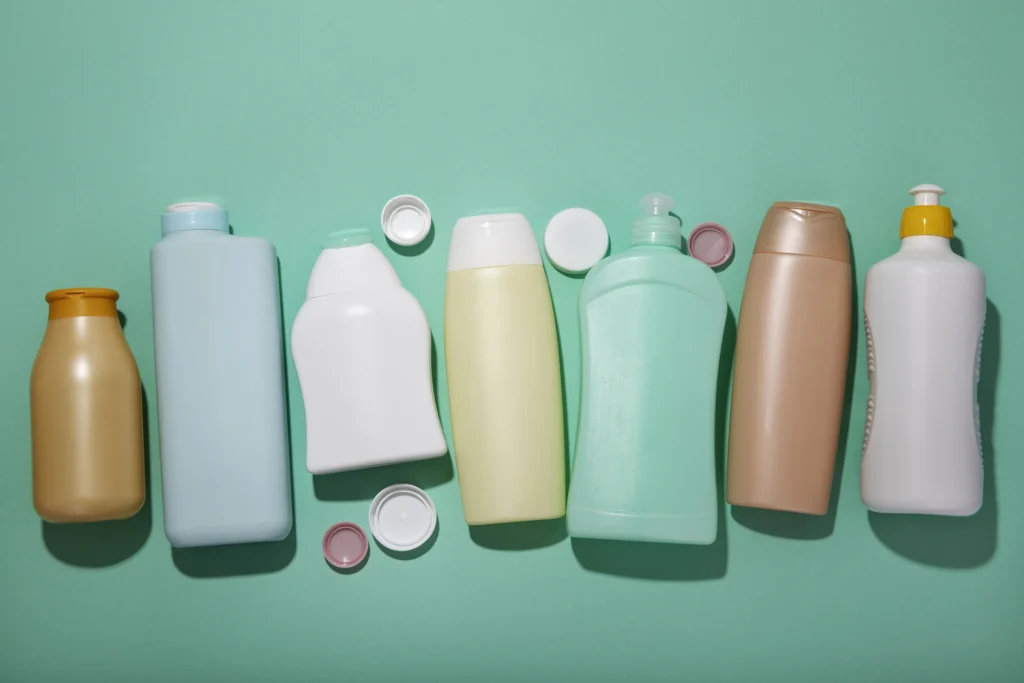
If your dandruff is caused by dryness, try these tips to alleviate the condition:
Moisturize with Natural Oils
Natural oils can be really effective in handling a dry scalp. The oils hydrate and nourish the scalp for it to get its natural barrier back again, from the root outwards, thereby eliminating any dryness, scurf, and irritation that may result. Oils such as coconut oil, argan oil, and jojoba oil penetrate into the scalp and lock moisture, hence preventing water loss. For instance, olive and almond oils have antioxidants and fatty acids which calm irritation and decrease inflammation.
Avoid Over-Washing Hair
Frequent washing strips the scalp of its natural oils, which can exacerbate dryness and lead to even more flakes and irritation. A balanced washing routine can keep the scalp’s natural moisture levels in check. Preserves Natural Oils: Over-washing can remove sebum, which normally protects and moisturizes the scalp. Dry shampoos or rinsing with water rather than shampooing daily can prevent the scalp from drying out.
Use Humidifiers in Dry Environments
Dry air, especially during the winter months or in artificially heated areas, causes dry scalp that may flake off and itch. A humidifier constantly disperses moisture into the air and, therefore, helps to keep your scalp hydrating. Humidifiers inject water vapor in the air, nullifying the drying effect of heaters and air conditioners.
Considerations for Oily Scalps
For oily scalps, managing excess sebum is key to controlling dandruff:
Use Shampoos with Oil Control
For those with oily scalps, controlling sebum production is very important for managing dandruff. High levels of oil present an ideal environment for the excessive growth of Malassezia, a fungus causing dandruff. Oil-control shampoos help to regulate the scalp by removing excess oil. Salicylic acid and selenium sulfide are just some of the ingredients that secrete this by slowing down sebum production and oxidation.
Avoid Heavy Hair Products
Heavy hair products, such as oily serums, waxes, and leave-in conditioners, exacerbate dandruff in an oily scalp. These tend to clog pores and cause an oily, flaky buildup on the scalp. By avoiding the heavy and greasy formulation, you minimize the chances of clogged hair follicles that trap dead skin cells and oil, exacerbating dandruff.
Wash Hair Regularly to Remove Excess Oil
Regular washing is important in the treatment of an oily scalp since it cleans out surplus sebaceous lubrication, dead skin cells, and environmental pollutants that lead to dandruff. Over-washing is not a hazard with dry scalp dandruff; whereas, an oily scalp benefits from frequent washings. If the sebum is not washed out, it is likely to mix up with dead skin cells, leading to visible flakes. Regular cleaning keeps the scalp environment less welcoming to the Malassezia fungus.
Myths About Dandruff Treatments
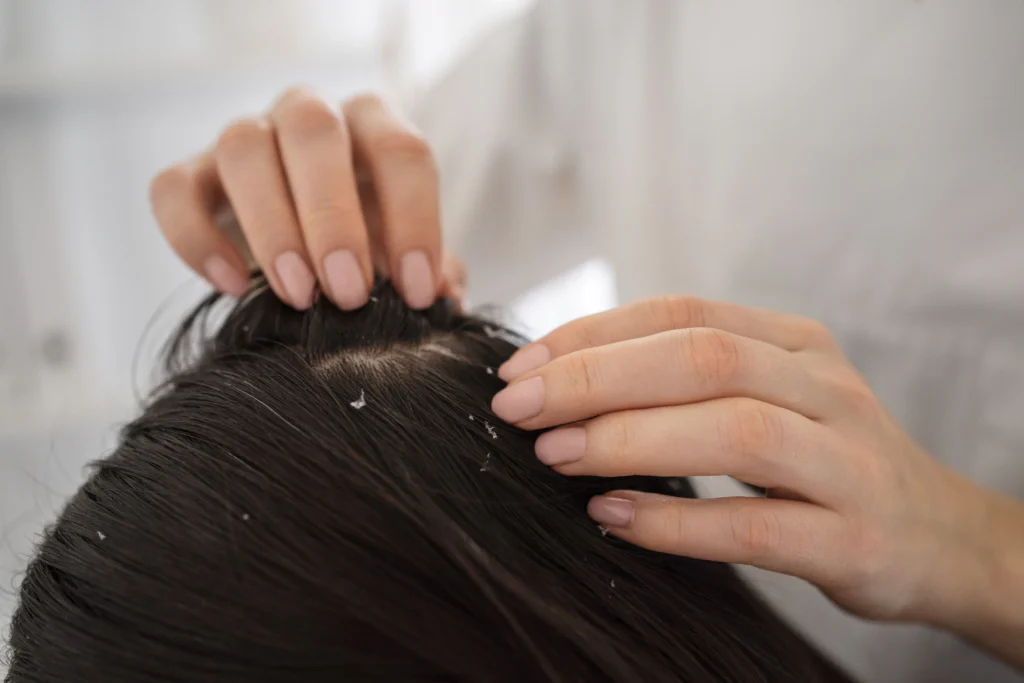
There are many misconceptions about dandruff that can hinder effective treatment:
Dandruff is Caused by Poor Hygiene
This is false. While poor hygiene may worsen dandruff, it is primarily caused by skin or scalp conditions.
Frequent Shampooing Worsens Dandruff
Using the right shampoo can actually improve dandruff symptoms, not worsen them.
All Anti-Dandruff Shampoos are the Same
Different shampoos contain varying ingredients targeting specific causes, so not all are equally effective for every individual.
Natural Alternatives to Shampoos
For those who prefer natural remedies, these options can be effective:
Herbal Rinses and Treatments
Herbal rinses made from neem, rosemary, or chamomile can soothe the scalp and reduce flakes.
Essential Oils for Scalp Health
Oils like tea tree, lavender, or peppermint can be diluted and massaged into the scalp for their antifungal and soothing properties.
Conclusion
Dandruff is a manageable condition that requires understanding its causes and choosing the right treatment. From medicated shampoos to natural remedies, there are plenty of options to achieve a healthy, flake-free scalp.
FAQ
Q1: Can dandruff lead to permanent hair loss?
No, dandruff itself does not cause permanent hair loss, but excessive scratching can damage hair follicles.
Q2: How often should I use anti-dandruff shampoo?
Follow the instructions on the shampoo label; typically, 2-3 times a week is recommended.
Q3: Are natural remedies as effective as medicated shampoos?
While natural remedies can help, medicated shampoos are often more effective for severe cases.

